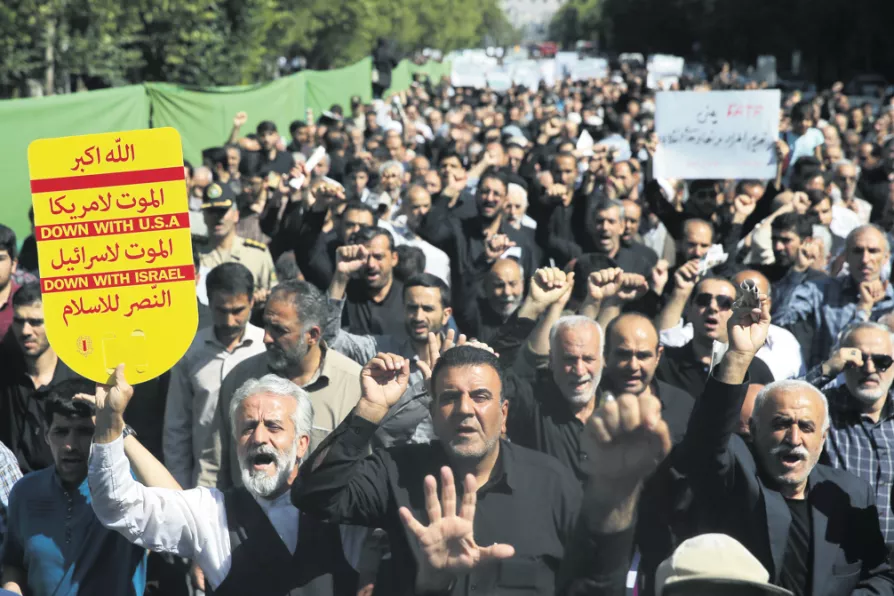

THE mantra that my enemy’s enemy is my friend can have some mileage and as a starting point in assessing our attitude towards any given regime may not be bad place to begin. However, it is a dangerous principle to apply too rigidly because, in many circumstances, the complexities beneath the surface require a more nuanced response. Very little in international politics is strictly black and white.
This is particularly the case when considering the position of the Islamic Republic of Iran and the attitude that the left should adopt towards the regime.
There can be no doubt that the basis of the 1979 revolution was a progressive one, in spite of the widespread portrayal in the Western media of despots deposing the Western-friendly regime of the Shah.

MOHAMMAD OMIDVAR, a senior figure in the Tudeh Party of Iran, tells the Morning Star that mass protests are rooted in poverty, corruption and neoliberal rule and warns against monarchist revival and US-engineered regime change

The Committee for the Defence of Iranian People’s Rights (Codir) welcomes demonstrations across Iran, which have put pressure upon the theocratic dictatorship, but warns against intervention by the United States to force Iran in a particular direction

Payam Solhtalab talks to GAWAIN LITTLE, general secretary of Codir, about the connection between the struggle for peace, against banking and economic sanctions, and the threat of a further military attack by the US/Israel axis on Iran

In the second of two articles, STEVE BISHOP looks at how the 1979 revolution’s aims are obfuscated to create a picture where the monarchists are the opposition to the theocracy, not the burgeoning workers’ and women’s movement on the streets of Iran










